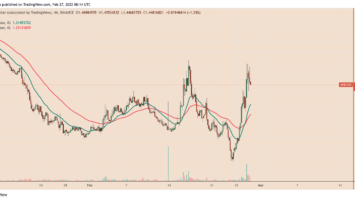As a millennial, it’s hard to say this, but boomers are doing crypto better. They are taking research methods used in the traditional markets and applying them to crypto projects, according to a new report from Bybit and consumer research company Toluna.
The report says that 34% of boomers spend “a few days” doing due diligence on a project before investing — 50% more than other generations. More concerning still, “64% of North American investors spend less than two hours or don’t DYOR at all.”
Boomers are also more likely to focus their research on technical factors such as tokenomics, revenue and competitor landscape. Compare this with their younger compatriots, who are more likely to prize reputational elements such as a charismatic founder and “website aesthetics.”
This shows that being a digital and crypto native is not as big an advantage as people think. It actually pales in comparison with some of the Warren Buffet-style skills that older investors have honed over the years.
Related: 5 tips for investing during a global recession
Maybe boomers are more likely to be retired and therefore have more free time than younger generations. It’s hard to say, but it seems the best way forward for young people is to get humble and learn from the oldies.
Even though crypto has many idiosyncratic properties that differentiate it from other capital markets, it still has enough in common to allow for a decent crossover in analytic skills. After all, the price of digital assets is highly dependent on the balance of market supply and demand, just like traditional markets.
Digging into the technicals can prevent the kind of poor decision-making that led to large losses in 2022. Several times I have felt really good about buying a token based on the project’s white paper and the strong narrative pushing it but found, on further research, that there were so many venture capital unlocks incoming that the selling pressure would weigh on prices for years to come.
Boomers who are used to crunching company numbers and calculating price-to-earnings and price/earnings-to-growth ratios can apply these skills to data from CoinGecko or CoinMarketCap. Younger generations need to learn why “circulating supply” versus “max supply” is important and why volume is critical.

Indeed, crypto projects resembling traditional value investments have held up relatively well in the bear market. Investors have become savvier about the difference between protocols that issue tokens as a glorified fundraising method and those that produce revenue and share it with holders. So-called “real yield” crypto projects are not dissimilar to dividend-paying companies — something boomer investors would be familiar with and perhaps drive some of their investing decisions.
This is not to ignore the importance of narrative and community in modern investing and crypto especially. For example, decentralized perpetual trading platforms such as GMX, Gains and ApeX Pro benefitted from the pro-decentralization sentiment following the FTX bankruptcy.
Researching this aspect requires a good knowledge of social media, especially Twitter, which is one of the main ways to access crypto’s prominent analysts, founders and degens. Investors use these tools to find narratives, assess where a narrative is in its lifecycle and gauge market sentiment in general.
Related: 5 reasons 2023 will be a tough year for global markets
But Millenials and Gen Z are not really at an advantage when it comes to using social media to assess trends because it’s not new anymore. It’s Web2, and everyone already knows how to use social media. In fact, youngsters turn their familiarity with social media into a disadvantage by over-valuing it as a research tool, while boomers are more likely to stick to the facts.
Traditional investing due diligence continues to set apart the men from the boys, just as it has done throughout history. As long as it does, boomers will outperform younger generations because they do more research and tend to be more patient when it comes to investing, which leads to higher returns than younger generations, who may jump into an investment without fully understanding what they’re getting into. If you’re looking for someone reliable and knowledgeable about due diligence, look no further than your parents or grandparents.
Nathan Thompson is the lead tech writer for Bybit. He spent 10 years as a freelance journalist, mostly covering Southeast Asia, before turning to crypto during the COVID-19 lockdowns. He holds joint honors in communication and philosophy from Cardiff University.
This article is for general information purposes and is not intended to be and should not be taken as legal or investment advice. The views, thoughts and opinions expressed here are the author’s alone and do not necessarily reflect or represent the views and opinions of Cointelegraph.



Comments (No)